Stefano Gherardini
Deep learning enhanced noise spectroscopy of a spin qubit environment
Jan 12, 2023Abstract:The undesired interaction of a quantum system with its environment generally leads to a coherence decay of superposition states in time. A precise knowledge of the spectral content of the noise induced by the environment is crucial to protect qubit coherence and optimize its employment in quantum device applications. We experimentally show that the use of neural networks can highly increase the accuracy of noise spectroscopy, by reconstructing the power spectral density that characterizes an ensemble of carbon impurities around a nitrogen-vacancy (NV) center in diamond. Neural networks are trained over spin coherence functions of the NV center subjected to different Carr-Purcell sequences, typically used for dynamical decoupling (DD). As a result, we determine that deep learning models can be more accurate than standard DD noise-spectroscopy techniques, by requiring at the same time a much smaller number of DD sequences.
Noise fingerprints in quantum computers: Machine learning software tools
Feb 09, 2022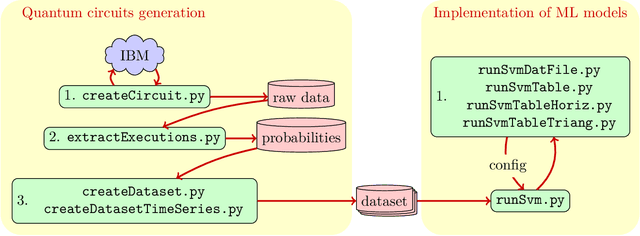
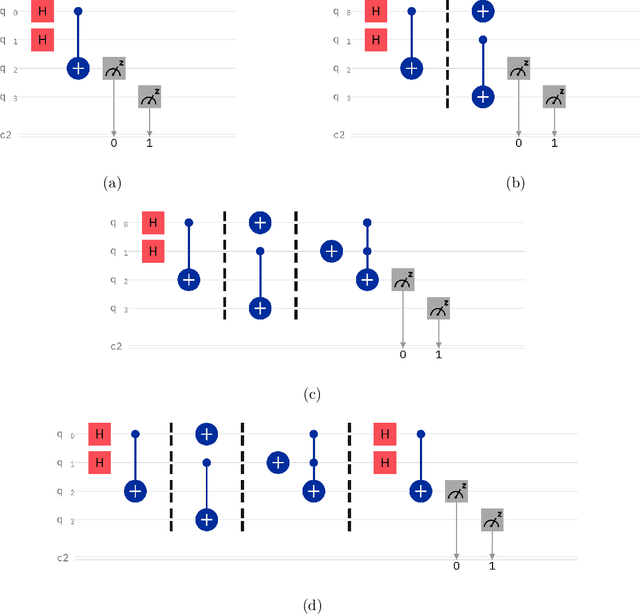
Abstract:In this paper we present the high-level functionalities of a quantum-classical machine learning software, whose purpose is to learn the main features (the fingerprint) of quantum noise sources affecting a quantum device, as a quantum computer. Specifically, the software architecture is designed to classify successfully (more than 99% of accuracy) the noise fingerprints in different quantum devices with similar technical specifications, or distinct time-dependences of a noise fingerprint in single quantum machines.
Learning the noise fingerprint of quantum devices
Sep 23, 2021
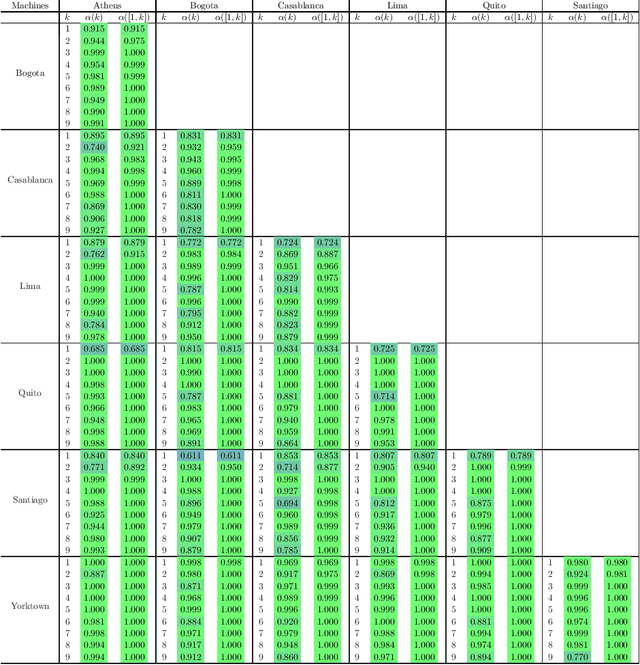
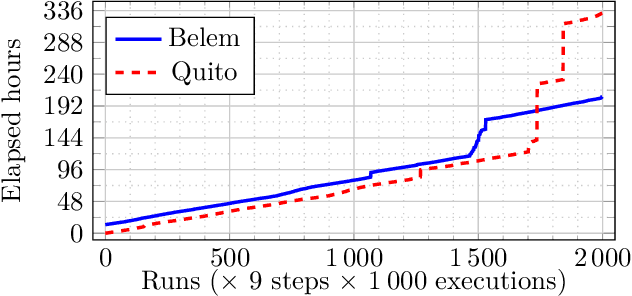

Abstract:Noise sources unavoidably affect any quantum technological device. Noise's main features are expected to strictly depend on the physical platform on which the quantum device is realized, in the form of a distinguishable fingerprint. Noise sources are also expected to evolve and change over time. Here, we first identify and then characterize experimentally the noise fingerprint of IBM cloud-available quantum computers, by resorting to machine learning techniques designed to classify noise distributions using time-ordered sequences of measured outcome probabilities.
Machine learning approach for quantum non-Markovian noise classification
Jan 08, 2021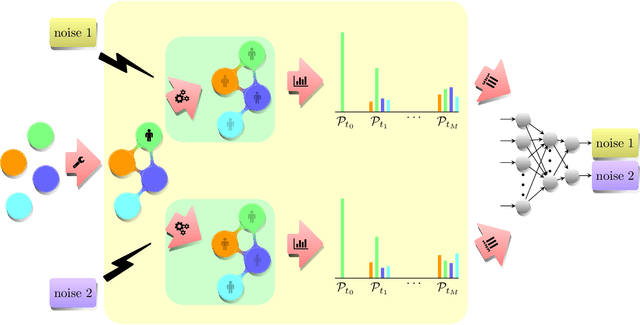
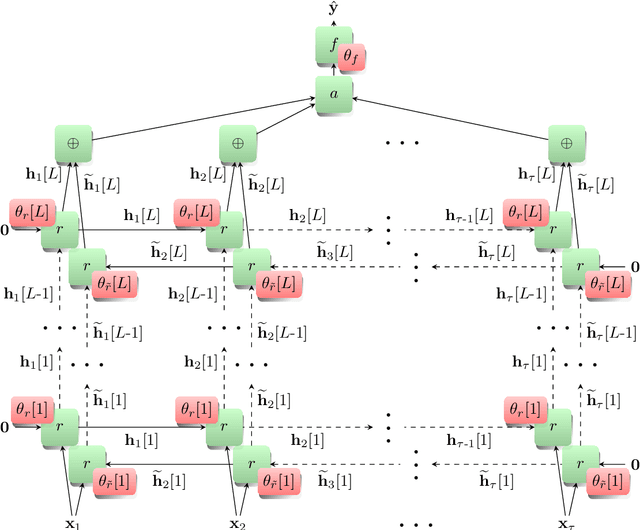
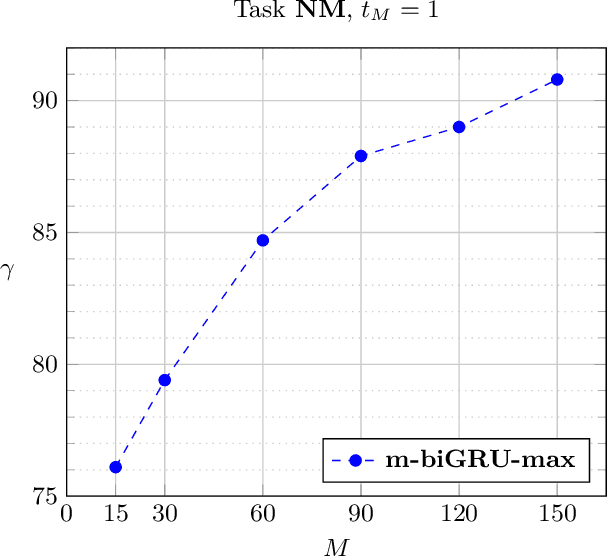
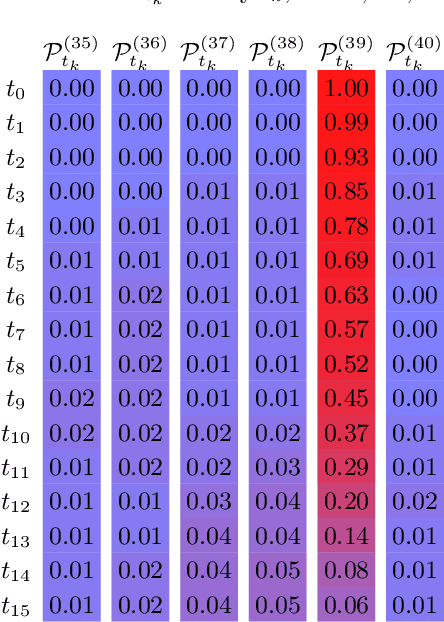
Abstract:In this paper, machine learning and artificial neural network models are proposed for quantum noise classification in stochastic quantum dynamics. For this purpose, we train and then validate support vector machine, multi-layer perceptron and recurrent neural network, models with different complexity and accuracy, to solve supervised binary classification problems. By exploiting the quantum random walk formalism, we demonstrate the high efficacy of such tools in classifying noisy quantum dynamics using data sets collected in a single realisation of the quantum system evolution. In addition, we also show that for a successful classification one just needs to measure, in a sequence of discrete time instants, the probabilities that the analysed quantum system is in one of the allowed positions or energy configurations, without any external driving. Thus, neither measurements of quantum coherences nor sequences of control pulses are required. Since in principle the training of the machine learning models can be performed a-priori on synthetic data, our approach is expected to find direct application in a vast number of experimental schemes and also for the noise benchmarking of the already available noisy intermediate-scale quantum devices.
 Add to Chrome
Add to Chrome Add to Firefox
Add to Firefox Add to Edge
Add to Edge